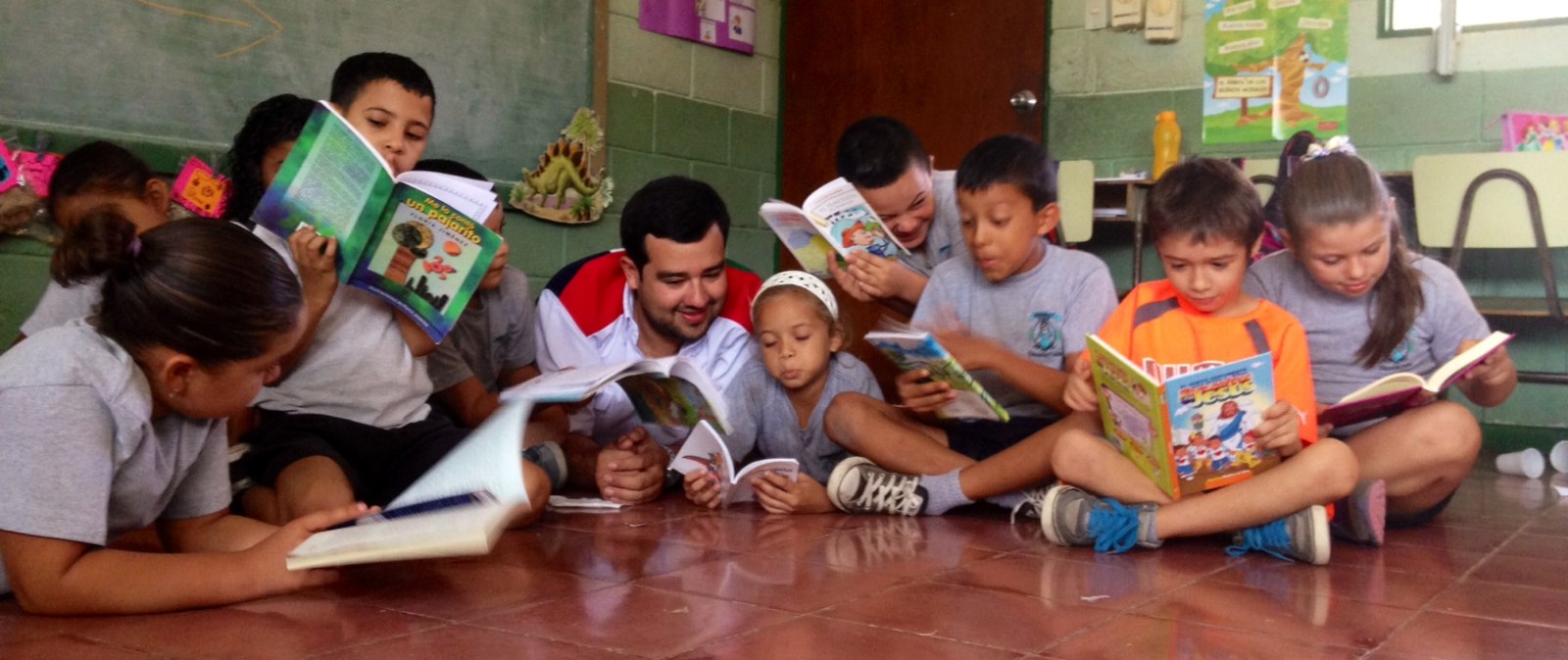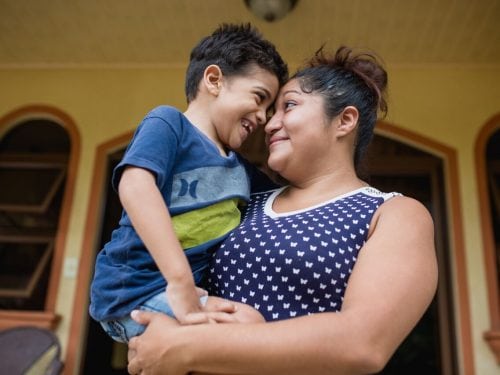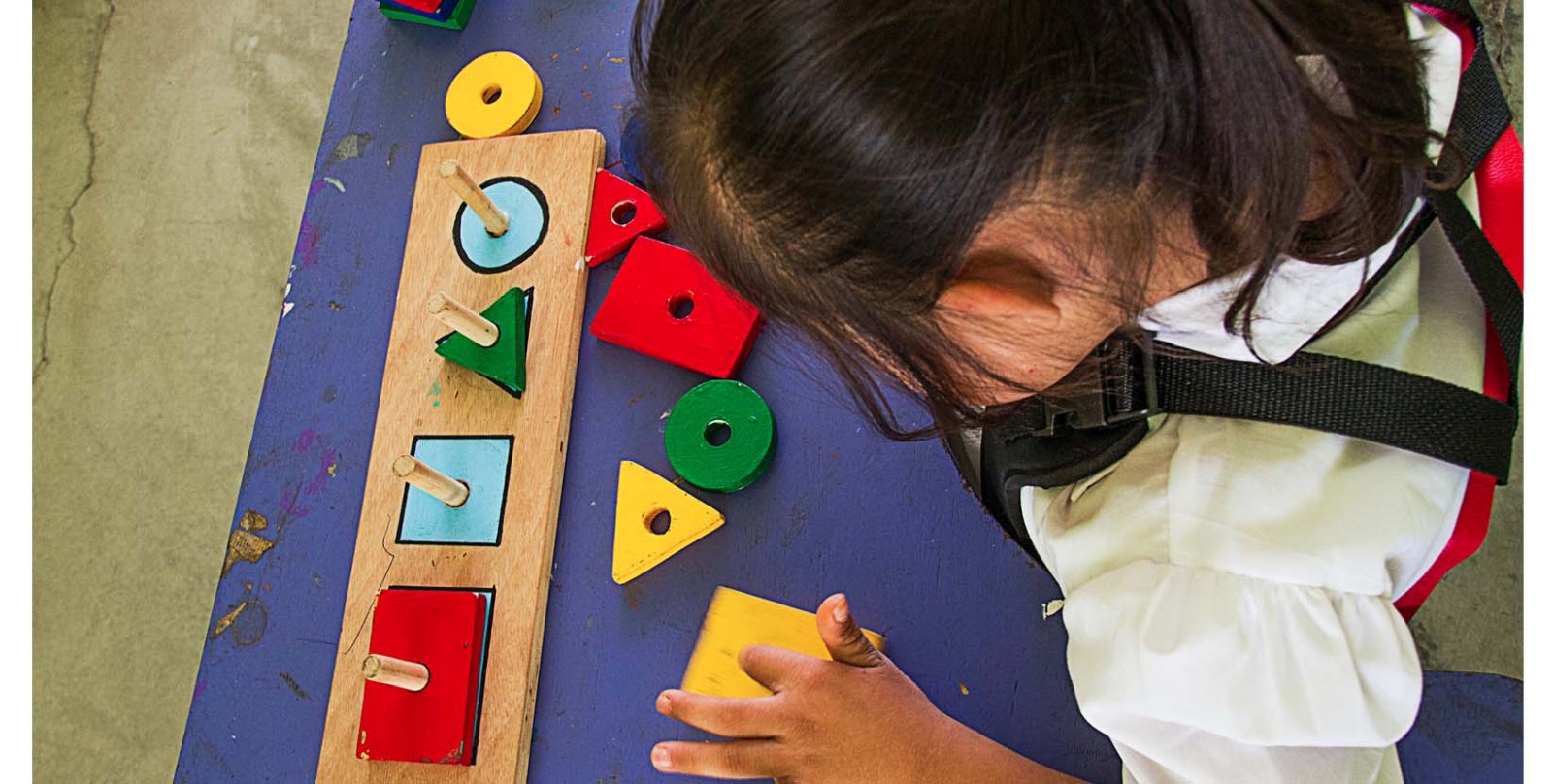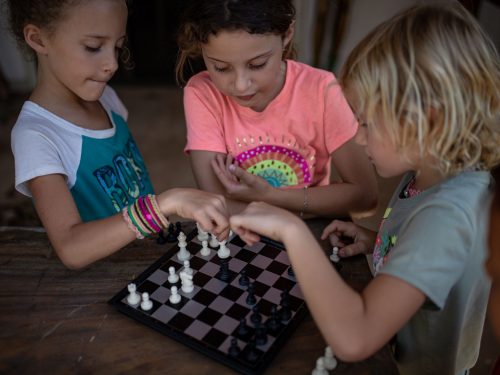
Have you thought about how much time your children spend at school each year? Let’s imagine that the average school day has five hours. If the standard of 200 days of classes is fulfilled, there would be 1,000 hours of classes per year, a little more than 40 whole days – 24-hour days including dawn, day and night. Perhaps it doesn’t seem so much when the year has twelve months, but the truth is that Costa Rican public elementary school students spend much more time in their homes or with their families than in the classrooms. I am not saying that’s good or bad, but it just is – 7,760 hours at home versus 1,000 at school. A big difference, doesn’t it seem?
And real education – that which lasts and can be used for an entire lifetime – isn’t about filling a box with data or facts but instead about lighting a flame that, when lit well, produces a fire that never burns out, a constant desire to learn and share important knowledge. Lucky for us, learning is an omnipresent phenomenon, which is to say, the opportunity to learn is present everywhere and at every moment. That makes me believe that true education has more to do with attitudes and character than mere information. True education happens at home and in community life, not necessarily at school. We should develop skills and abilities among the youngest that allow them to learn forever, with and from others. Smart phones and marvelous books and computers have a lot to teach us in life if we know how to use them correctly.
I remember that during my childhood I had daily responsibilities around the house, and that my mother never asked for anything she didn’t give. Example has been and continues to be the best teacher of all, relations the best book and determination the best notebook for writing a successful story. Children do not learn from someone they do not like; they need a champion that inspires them with actions more than words, someone who is able to get the best from themselves and the children every day, who demonstrates the value of authenticity in any circumstance.
It is true that schools, by nature, are laboratories of coexistence. There they meet people of their own or similar ages that think and live in different ways, who feel different emotions and who do not necessarily manage them in the same way. Diversity makes the classroom a magical place, and for that reason tolerance there is easily learned if there is a good guide at home, because the family is always the base for true education.
The music we listen to, the programs we watch on television, and the media through which we get information affect, in large part, our children’s teaching-learning process and shape their world vision. What are we reading? Do we sit with them to talk about the reality of our community? Do we explain the importance of being good neighbors and citizens?
Before any profession or job, we are people. That is something that we can never forget – people with rights and responsibilities. I am trying to never stop learning and I enjoy educating myself a lot, learning from and with others: I observe, investigate, and experiment. Society hopes for a lot from Guanacaste, and from Guanacastecans.
Are we giving the world our best? I would like to think yes.







Comments